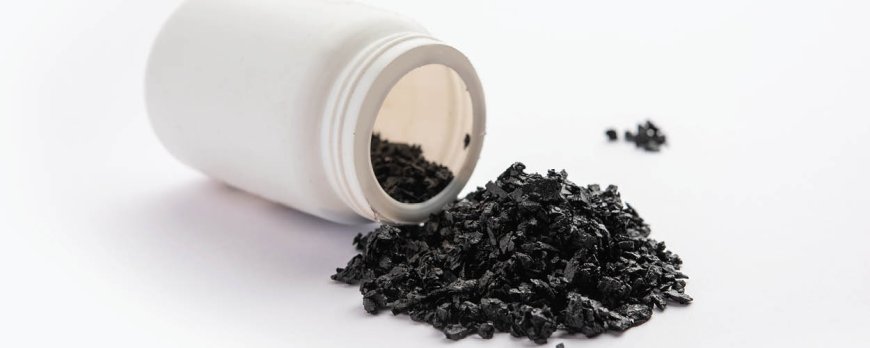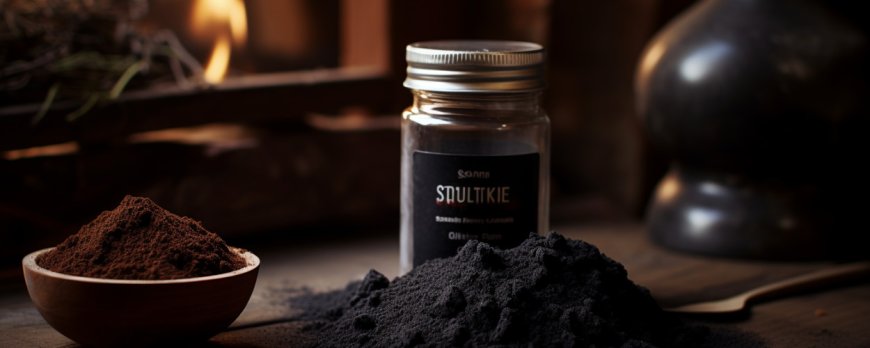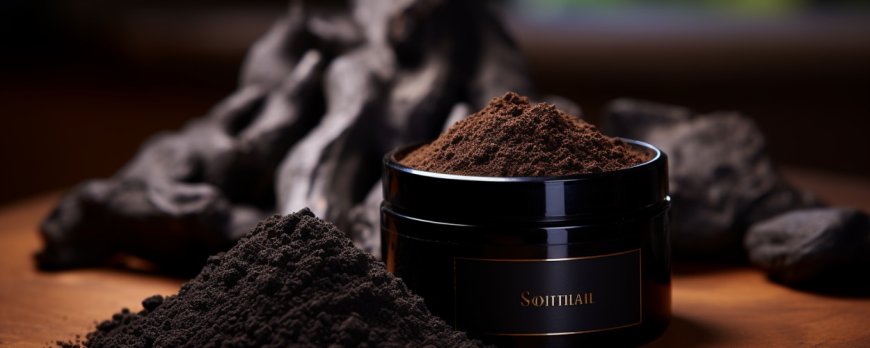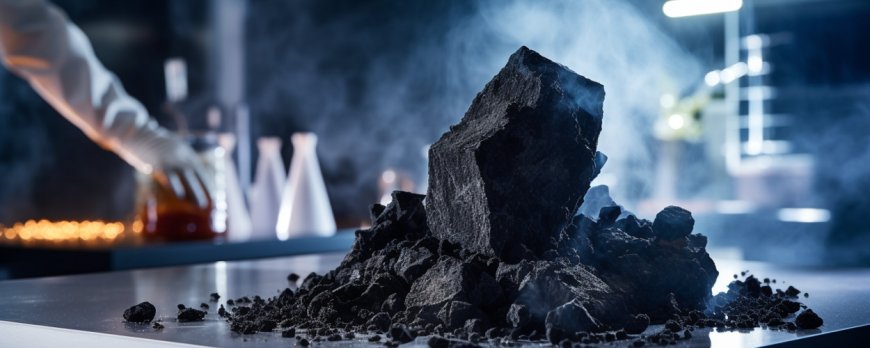What happens if you take too much Shilajit?
Understand the consequences of overusing Shilajit. 'What happens if you take too much Shilajit?' Learn more about dosage mistakes and potential adverse effects.

What happens if you take too much Shilajit?
Shilajit, a resin used in Ayurveda medicine, can have adverse effects if consumed in excessive amounts. This sticky substance contains fulvic acid and is known for its rich mineral content. While it has been traditionally used for various health conditions, the scientific evidence supporting its effectiveness is limited. Taking too much Shilajit can lead to potential side effects and risks that individuals should be aware of.
Key Takeaways:
- Excessive consumption of Shilajit can result in adverse effects on the body.
- Possible side effects include increased iron levels, hormone level alterations, and potential contamination with heavy metals or fungus.
- Pregnant or lactating individuals, children, and those with certain health conditions should avoid Shilajit.
- Consultation with a healthcare provider before taking Shilajit is crucial.
- Purchasing Shilajit from trusted sources ensures safety and effectiveness.

Understanding Shilajit and its Uses
Before discussing the consequences of taking too much Shilajit, it's important to understand what this resin is and how it is commonly used in Ayurvedic medicine. Shilajit is a natural substance that is formed over centuries from the decomposition of plant and organic matter in the Himalayas. It is primarily composed of fulvic acid, which is believed to have antioxidant and anti-inflammatory properties. Additionally, Shilajit is rich in minerals such as iron, zinc, and magnesium.
In Ayurvedic medicine, Shilajit is highly regarded for its rejuvenating and energizing properties. It is traditionally used to support overall wellbeing, boost vitality, and enhance physical and mental performance. Shilajit is often consumed as a dietary supplement in the form of capsules, powders, or resin. However, it's important to note that despite its long history of use, scientific research on Shilajit is limited and its potential health benefits are still being explored.
The potential health benefits of Shilajit:
- May support healthy aging
- May have anti-inflammatory effects
- May improve energy levels and physical performance
- May enhance cognitive function and memory
- May support immune system function
While these potential benefits are promising, it's crucial to approach Shilajit with caution and be aware of the possible risks associated with excessive consumption.
Potential Side Effects of Excessive Shilajit Consumption
Taking an excessive amount of Shilajit can lead to various adverse effects on the body. Shilajit, a resin used in Ayurveda medicine, is known for its high content of fulvic acid and minerals. While it is believed to have potential benefits for certain health conditions, it is important to note that the scientific evidence supporting its use is limited.
One potential side effect of consuming too much Shilajit is an increase in iron levels in the body. This can be particularly concerning for individuals with conditions such as hemochromatosis, where the body absorbs too much iron. Excessive intake of Shilajit can exacerbate this imbalance, leading to further health complications. Additionally, hormonal imbalances can occur due to excessive Shilajit consumption, with a significant increase in total testosterone being a common alteration.
Another factor to consider is the potential for contamination in Shilajit products. Due to its sourcing from natural environments, Shilajit can be contaminated with heavy metals or fungus, which can have harmful effects on the body. It is crucial to ensure that Shilajit is purchased from trusted sources to minimize the risk of exposure to such contaminants.
Specific groups, such as pregnant or lactating individuals, children, and those with certain health conditions, should avoid consuming Shilajit due to the potential side effects. It is recommended to consult with a healthcare provider before incorporating Shilajit into your routine, as the recommended dosage is unclear and there may be potential interactions with other supplements or medications. To ensure safety and effectiveness, it is advisable to only purchase Shilajit from reputable and regulated sources.

Increased Iron Levels and Hemochromatosis
Excessive Shilajit consumption can result in elevated iron levels, which can be particularly problematic for individuals with hemochromatosis. Hemochromatosis is a genetic disorder that causes the body to absorb and store too much iron, leading to iron overload. Taking high amounts of Shilajit, which is naturally rich in iron, can further exacerbate this condition and lead to serious health complications.
In individuals with hemochromatosis, excessive iron accumulation can damage organs like the liver, heart, and pancreas. It can also cause symptoms such as fatigue, joint pain, and abdominal pain. Therefore, it is crucial for individuals with this condition to avoid consuming excessive amounts of Shilajit to prevent further iron overload.
It is highly recommended that individuals with hemochromatosis or any other iron-related disorder consult with their healthcare provider before considering Shilajit supplementation. A healthcare professional can provide guidance on safe iron intake levels and help determine whether Shilajit is suitable for their specific condition. They can also monitor iron levels regularly to ensure optimal health and prevent complications associated with iron overload.
Precautions for individuals with hemochromatosis:
- Avoid excessive Shilajit consumption to prevent further iron overload
- Consult with a healthcare provider before considering Shilajit supplementation
- Regularly monitor iron levels to prevent complications associated with iron overload
By taking these precautions, individuals with hemochromatosis can maintain better control over their iron levels and minimize the potential health risks of consuming too much Shilajit.
Hormone Level Alterations
Consuming too much Shilajit can lead to hormonal imbalances, including a notable increase in total testosterone. While Shilajit is traditionally believed to have potential health benefits, scientific evidence supporting its use is limited. It is important to be cautious when using Shilajit and consult with a healthcare provider before starting any supplementation.
The excessive consumption of Shilajit may disrupt hormone levels, causing an abnormal rise in total testosterone. This hormonal imbalance can have various effects on the body, potentially leading to mood swings, acne, and changes in libido. Monitoring hormone levels and seeking guidance from a healthcare professional is essential to ensure the proper use of Shilajit and avoid any negative consequences.
Signs of Hormonal Imbalance from Excessive Shilajit Consumption:
- Increased aggression or irritability
- Unexplained changes in acne breakouts
- Fluctuations in sex drive
- Mood swings and emotional instability
Individuals who already have hormonal imbalances or conditions related to hormone regulation should be particularly cautious when considering Shilajit supplementation. It is essential to consult with a healthcare provider before incorporating Shilajit into any healthcare regimen.
Potential Contamination Risks
Excessive consumption of Shilajit can expose individuals to potential contamination risks, such as heavy metals or fungus. As a natural resin sourced from mountains, Shilajit can sometimes contain traces of heavy metals like lead, mercury, or arsenic. These contaminants can be harmful to health if consumed in high amounts over an extended period.
Furthermore, since Shilajit is harvested from rocks, there is a possibility of fungus contamination. If not properly processed or stored, the resin can become a breeding ground for fungi, including harmful molds. Consumption of contaminated Shilajit can lead to adverse reactions and pose a risk to individuals with weakened immune systems.
To mitigate these potential dangers, it is crucial to purchase Shilajit from trusted sources that adhere to strict quality control measures. Look for reputable brands or suppliers that provide third-party lab testing results to ensure the absence of heavy metals and fungi contamination. Additionally, storing Shilajit in a cool, dry place can help maintain its integrity and reduce the risk of contamination.
When incorporating Shilajit into your health regimen, always prioritize safety. Consult with a healthcare provider before starting any new supplement, especially if you have underlying health conditions or are taking medications. They can provide personalized advice based on your specific needs and help determine an appropriate dosage to minimize potential risks.
Precautions for Specific Groups
Certain individuals, such as pregnant or lactating women, children, and those with specific health conditions, should refrain from taking Shilajit. While Shilajit may have potential benefits for certain health conditions, it is important to consider the potential risks and consult with a healthcare provider before starting any new supplement regimen.
For pregnant or lactating women, the safety of Shilajit has not been thoroughly studied, and there is a lack of reliable information on its effects on pregnancy and breastfeeding. It is advisable to err on the side of caution and avoid Shilajit during this time.
Similarly, children should not consume Shilajit without proper medical guidance. As their bodies are still developing, they may be more susceptible to the potential side effects of Shilajit. It is best to consult with a pediatrician before considering Shilajit for children.
Individuals with specific health conditions, such as hemochromatosis, should also be cautious when it comes to Shilajit consumption. Hemochromatosis is a disorder where the body absorbs too much iron, and taking Shilajit may further elevate iron levels in the body. This can lead to complications and worsen symptoms associated with the condition. If you have hemochromatosis or any other existing health condition, it is important to discuss Shilajit with your healthcare provider before incorporating it into your routine.
Remember, always prioritize your health and safety when considering the use of any dietary supplement, including Shilajit. It is crucial to consult with a healthcare provider, especially if you fall into any of the specific groups mentioned above. By taking the necessary precautions and seeking professional advice, you can make informed decisions about your wellness journey.

Recommended Dosage and Consultation with Healthcare Provider
It is crucial to seek guidance from a healthcare provider before starting Shilajit, given the unclear recommended dosage and potential interactions. As a natural resin used in Ayurvedic medicine, Shilajit contains fulvic acid and is known for its rich mineral content. While it may offer potential benefits for certain health conditions, scientific evidence supporting its use is limited.
Excessive Shilajit consumption can have consequences, such as increased iron levels in the body. This can be particularly risky for individuals with conditions like hemochromatosis, a genetic disorder characterized by the body's inability to regulate iron. Consultation with a healthcare provider can help determine if Shilajit is safe for you.
In addition to potential iron level alterations, excessive Shilajit intake may also result in hormone level changes. Some studies have shown a significant increase in total testosterone with Shilajit consumption. Monitoring hormone levels and seeking professional medical advice is essential, especially for individuals with hormone-related conditions.
Furthermore, there is a risk of potential contamination with heavy metals or fungus in unregulated dietary supplements like Shilajit. To ensure safety and effectiveness, it is crucial to purchase Shilajit from trusted sources. This helps minimize the chances of ingesting harmful substances unknowingly.
Ensuring Safety and Effectiveness of Shilajit
To ensure both safety and effectiveness, it is vital to obtain Shilajit from reputable sources that follow quality control measures. As an unregulated dietary supplement, the market for Shilajit can be unpredictable, and there have been cases of contamination with heavy metals or fungus. Therefore, it is important to purchase Shilajit from trusted suppliers who adhere to strict quality standards.
When sourcing Shilajit, look for products that are tested for purity and potency. Reputable manufacturers often conduct third-party lab testing to confirm that their products are free from harmful contaminants and meet quality specifications. These tests can determine the absence of heavy metals and ensure that the Shilajit is of high quality.
Additionally, it is crucial to consider the reputation and credibility of the brand or supplier. Look for companies that have established a positive track record and have a transparent manufacturing process. Reading customer reviews and seeking recommendations from healthcare professionals can help in identifying reliable sources of Shilajit.
By obtaining Shilajit from trustworthy sources, you can minimize the potential risks associated with consuming adulterated or low-quality products. This will allow you to experience the potential benefits of Shilajit, while also ensuring your safety and well-being.
Shilajit Overdose Symptoms
Overdosing on Shilajit may lead to specific symptoms that individuals should be aware of. While Shilajit, a resin used in Ayurveda medicine, has potential health benefits, excessive consumption can have negative effects on the body.
If you have taken too much Shilajit, you may experience the following symptoms:
- 1. Nausea and vomiting
- 2. Diarrhea
- 3. Abdominal pain
- 4. Dizziness
- 5. Headaches
- 6. Palpitations
- 7. Increased heart rate
It is important to note that these symptoms may vary in severity depending on the individual and the amount of Shilajit consumed.
If you experience any of these symptoms after taking Shilajit, it is crucial to seek medical attention immediately. A healthcare professional will be able to assess your condition and provide appropriate treatment if necessary.
Remember, it is always advisable to consult with a healthcare provider before taking any dietary supplements, including Shilajit. They can provide guidance on the recommended dosage and help determine if Shilajit is suitable for you, considering any pre-existing medical conditions or potential interactions with other medications or supplements.
Conclusion
Taking excessive amounts of Shilajit can have various side effects and risks, underlining the importance of informed consumption and medical advice. Shilajit is a resin used in Ayurveda medicine, renowned for its content of minerals and fulvic acid. Although it may offer potential benefits for certain health conditions, the scientific evidence supporting its use remains limited. It is important to be aware of the potential consequences of consuming too much Shilajit.
Possible Side Effects
Consuming excessive amounts of Shilajit can lead to increased iron levels in the body, which may be particularly problematic for individuals with conditions such as hemochromatosis. Hormone levels can also be affected, with a significant increase in total testosterone being observed. Additionally, there is a risk of contamination, including the presence of heavy metals or fungus in Shilajit products. It is vital to carefully consider these potential side effects before incorporating Shilajit into your routine.
Precautions and Consultation
Specific groups, including pregnant or lactating individuals, children, and those with certain health conditions, should avoid consuming Shilajit altogether. Before starting any new supplement regimen, it is always essential to consult with a healthcare provider. They can provide guidance on the appropriate dosage, potential interactions with other medications or supplements, and overall suitability based on individual health circumstances.
Purchasing Considerations
When purchasing Shilajit or any other unregulated dietary supplement, it is crucial to source it from trusted and reputable suppliers. This ensures the safety and effectiveness of the product, reducing the risk of contamination or low-quality ingredients. As the recommended dosage for Shilajit remains unclear, it is vital to prioritize the advice of medical professionals and exercise caution when determining your intake.
Conclusion
In conclusion, it is crucial to exercise caution and moderation when consuming Shilajit due to its potential side effects and risks. Shilajit, a resin used in Ayurveda medicine, contains fulvic acid and is rich in minerals. While it may have potential benefits for certain health conditions, there is limited scientific evidence to support its use.
Possible side effects of taking too much Shilajit include increased iron levels, hormone level alterations such as a significant increase in total testosterone, and potential contamination with heavy metals or fungus. Pregnant or lactating individuals, children, and those with conditions such as hemochromatosis should avoid Shilajit.
It is important to consult with a healthcare provider before taking Shilajit, as the recommended dosage is unclear and there may be potential interactions with other supplements or medications. Unregulated dietary supplements, such as Shilajit, should be purchased from trusted sources to ensure safety and effectiveness.
FAQ
What are the potential side effects of taking too much Shilajit?
Possible side effects of taking too much Shilajit include increased iron levels, hormone level alterations, and potential contamination with heavy metals or fungus.
Can excessive Shilajit consumption increase iron levels?
Yes, taking too much Shilajit can lead to increased iron levels in the body.
How does excessive Shilajit consumption alter hormone levels?
Excessive Shilajit consumption can result in a significant increase in total testosterone levels.
Is there a risk of contamination with heavy metals or fungus in Shilajit?
Yes, there is a potential risk of Shilajit being contaminated with heavy metals or fungus.
Who should avoid taking Shilajit?
Pregnant or lactating individuals, children, and those with conditions such as hemochromatosis should avoid taking Shilajit.
Why is it important to consult with a healthcare provider before taking Shilajit?
It is important to consult with a healthcare provider before taking Shilajit as the recommended dosage is unclear and there may be potential interactions with other supplements or medications.
Where should I purchase Shilajit to ensure safety and effectiveness?
It is important to purchase Shilajit from trusted sources to ensure safety and effectiveness.






























































































































